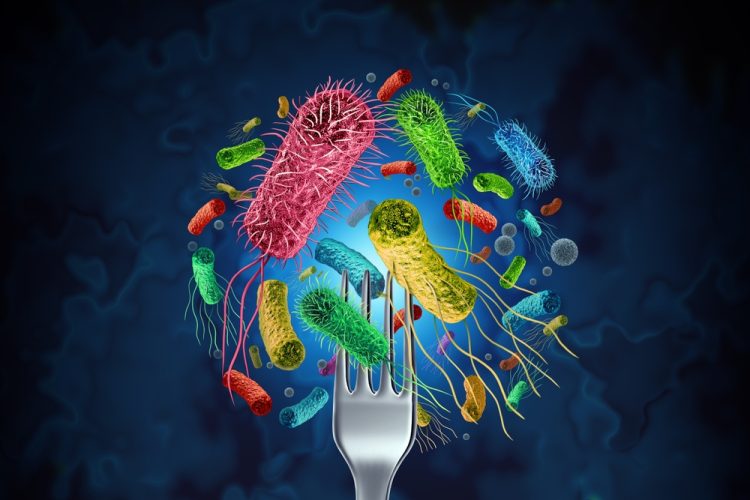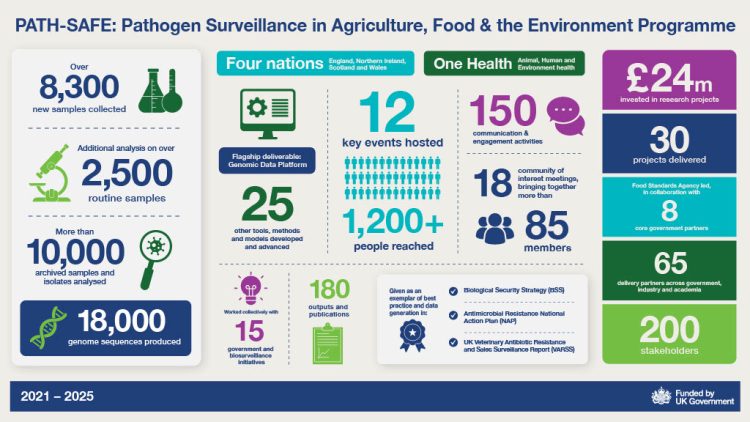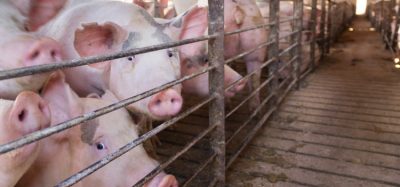UK foodborne disease surveillance strengthened as FSA concludes PATH-SAFE programme
Posted: 30 September 2025 | Ben Cornwell | No comments yet
PATH-SAFE delivered new tools, genomic data and stronger partnerships, transforming UK foodborne disease surveillance and shaping future national biosecurity strategy.


The Food Standards Agency (FSA) has concluded its £24 million PATH-SAFE programme, a four-year cross-government initiative designed to strengthen the UK’s defences against foodborne disease and antimicrobial resistance (AMR).
Launched in 2021, the Pathogen Surveillance in Agriculture, Food, and the Environment (PATH-SAFE) programme set out to modernise bio-surveillance across the food chain.
Over the past four years, it has tested more than 8,300 samples, analysed 2,500 routine samples, re-examined 10,000 archived samples and produced 18,000 genome sequences. The findings are already influencing outbreak response and informing policy.
Join our free webinar: Rethinking Listeria monitoring: faster, simpler solutions for food safety & environmental testing
Discover how modern Listeria monitoring solutions can support faster, more reliable food and environmental testing, and help elevate your laboratory’s efficiency and confidence in results.
Date: 18 March 2026 | Time: 15:00 GMT
Rick Mumford, Head of Science Evidence and Research at the FSA, said:
PATH-SAFE has shown what’s possible when we coordinate across sectors with a shared mission. We now have new tools, stronger partnerships, and actionable insights that are already shaping decision-making. The next step is to ensure this momentum continues with long term investment and clear cross government ownership.”
A One Health approach
More than 65 partners, including UKHSA, DEFRA, APHA, Food Standards Scotland, the Environment Agency and CEFAS, joined forces under the One Health principle, recognising the interconnection between human, animal and environmental health.
This collaboration delivered significant advances. New wastewater monitoring techniques shed light on risks from hospital discharges and the spread of resistant pathogens into the environment. Sequencing of 12,500 isolates has helped establish new baselines for AMR in livestock and imported feed. Genomic data platforms for Salmonella and E. coli have been built and are now in government trials.
PATH-SAFE has also been credited with improving coordination between government, industry and local authorities, as well as widening engagement with stakeholders from across the UK agri-food system.
National impact
The programme’s reach is already visible in national strategy. The UK Biological Security Strategy and the AMR National Action Plan 2024–2029 both cite PATH-SAFE, whose data also informed the Veterinary Antimicrobial Resistance and Sales Surveillance report.
In total, the initiative produced more than 180 publications, 25 new tools and models, 15 bio-surveillance initiatives and hosted 18 communities of interest meetings with 85 members. PATH-SAFE events drew more than 1,200 participants, and over 150 communication activities helped share its findings widely.


PATH-SAFE programme impact metrics. Credit: FSA
Looking ahead
An independent evaluation found the programme delivered strong value for money, reduced duplication across departments and created the foundations for a more integrated, efficient surveillance system. Recommendations for future action include scaling up successful methods, addressing barriers to data sharing, and coordinating surveillance initiatives across government.
Building on this work, the FSA is developing a new national Food Surveillance Programme (FSP). This aims to boost laboratory capacity, advance testing methods, strengthen cross-government collaboration and harness innovation and data science to protect UK biosecurity.
Related topics
Contaminants, Food Safety, Health & Nutrition, Hygiene, Outbreaks & product recalls, Pathogens, Regulation & Legislation, The consumer









